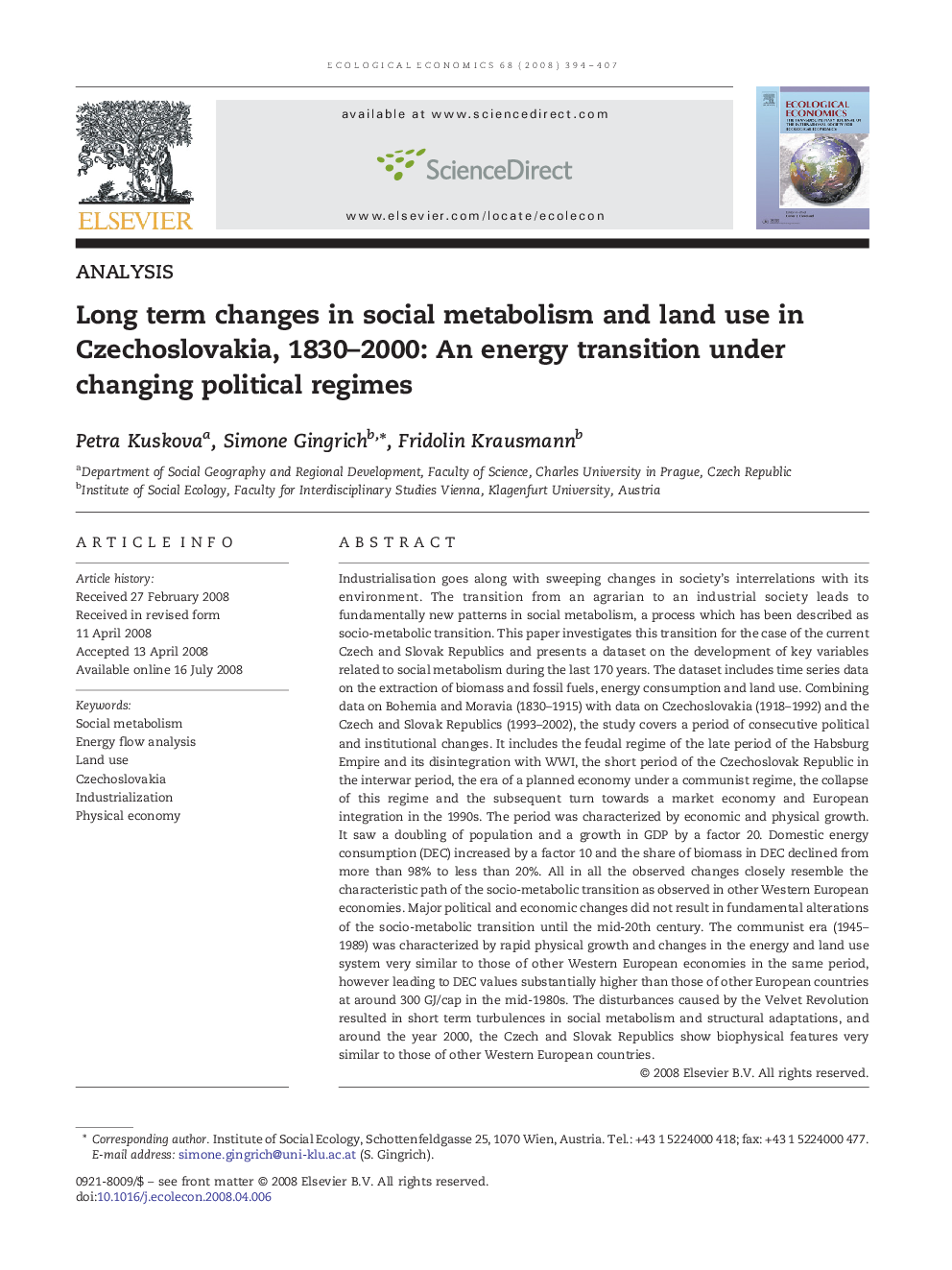| کد مقاله | کد نشریه | سال انتشار | مقاله انگلیسی | نسخه تمام متن |
|---|---|---|---|---|
| 5051700 | 1476411 | 2008 | 14 صفحه PDF | دانلود رایگان |

Industrialisation goes along with sweeping changes in society's interrelations with its environment. The transition from an agrarian to an industrial society leads to fundamentally new patterns in social metabolism, a process which has been described as socio-metabolic transition. This paper investigates this transition for the case of the current Czech and Slovak Republics and presents a dataset on the development of key variables related to social metabolism during the last 170Â years. The dataset includes time series data on the extraction of biomass and fossil fuels, energy consumption and land use. Combining data on Bohemia and Moravia (1830-1915) with data on Czechoslovakia (1918-1992) and the Czech and Slovak Republics (1993-2002), the study covers a period of consecutive political and institutional changes. It includes the feudal regime of the late period of the Habsburg Empire and its disintegration with WWI, the short period of the Czechoslovak Republic in the interwar period, the era of a planned economy under a communist regime, the collapse of this regime and the subsequent turn towards a market economy and European integration in the 1990s. The period was characterized by economic and physical growth. It saw a doubling of population and a growth in GDP by a factor 20. Domestic energy consumption (DEC) increased by a factor 10 and the share of biomass in DEC declined from more than 98% to less than 20%. All in all the observed changes closely resemble the characteristic path of the socio-metabolic transition as observed in other Western European economies. Major political and economic changes did not result in fundamental alterations of the socio-metabolic transition until the mid-20th century. The communist era (1945-1989) was characterized by rapid physical growth and changes in the energy and land use system very similar to those of other Western European economies in the same period, however leading to DEC values substantially higher than those of other European countries at around 300Â GJ/cap in the mid-1980s. The disturbances caused by the Velvet Revolution resulted in short term turbulences in social metabolism and structural adaptations, and around the year 2000, the Czech and Slovak Republics show biophysical features very similar to those of other Western European countries.
Journal: Ecological Economics - Volume 68, Issues 1â2, 1 December 2008, Pages 394-407